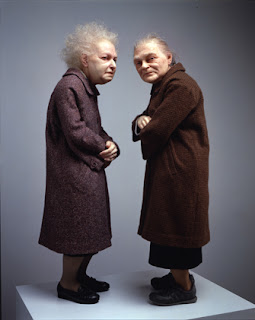The Ogden Museum of Southern Art

The Museum opened in its new home in 2003. The special exhibition, when we visited it, was William Dunlap’s “Panorama of the American Landscape,” a fourteen-paneled work. Half of it depicted a snow-covered landscape in which a row of deer heads continued into infinity. According to the curatorial note, the deer heads stand for the human casualties at the Battle of Antietem during the Civil War. The other seven panels of the panorama were verdant, with two horse-riding hunters in the background, and a troop of hunting dogs occupying much of the foreground. The juxtaposition of an upper class sport and a terrible battle was strongly dissonant, and made me unsure how to read the painting. The hunters didn’t seem to be responsible in the painting for the harvest of deer. They were figures of grace and civilization, whose elegant houses dotted the green landscape unobstrusively. The dogs were painted with loving detail that ennobled them without anthropomorphizing them. In an exhibition no...


